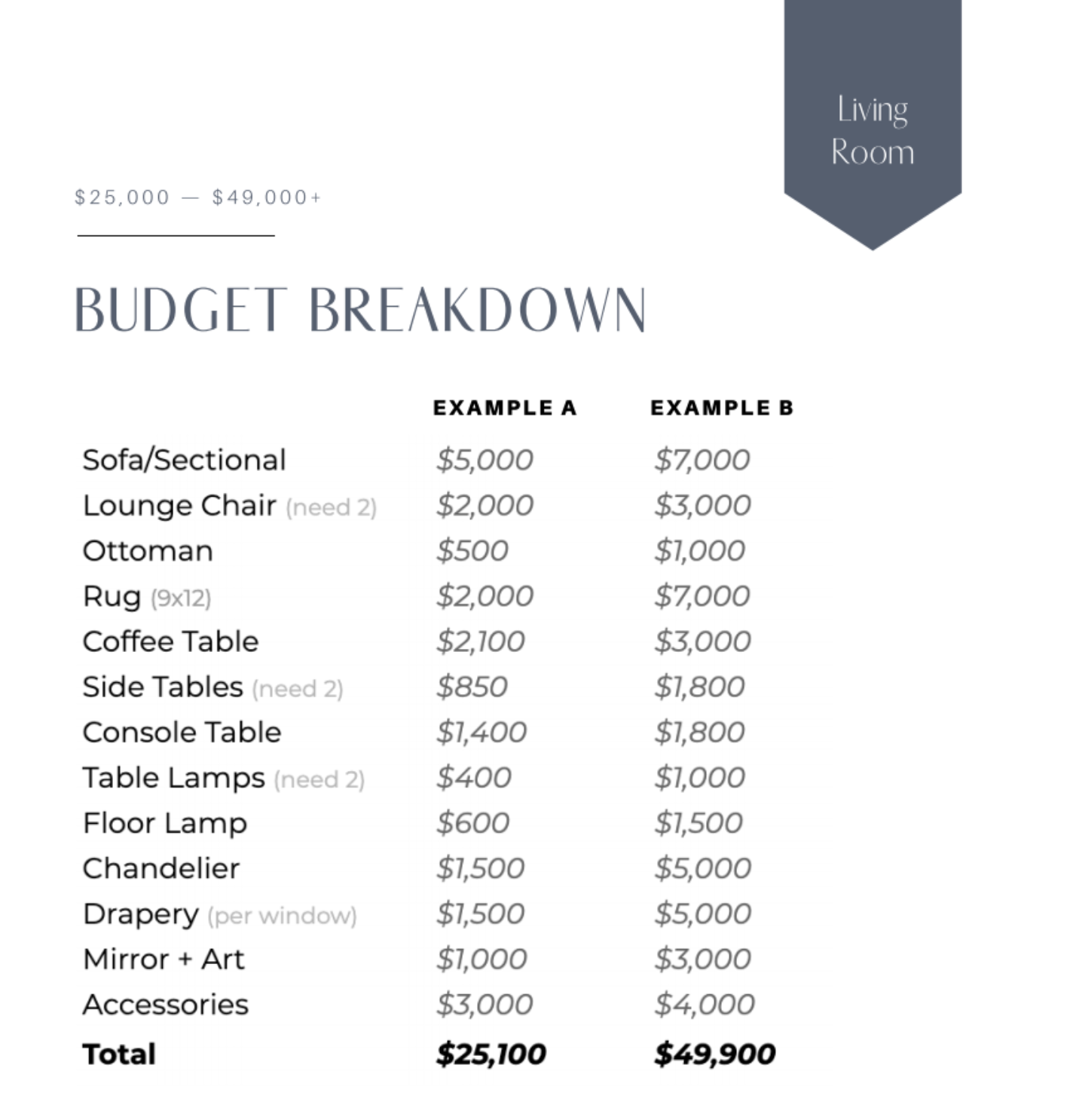Are you looking to renovate your home or office space but don’t know where to start when it comes to budgeting for interior design? Creating a budget template can help you stay organized and track your expenses throughout the design process. Whether you’re working on a small project or a complete overhaul, having a budget template in place can save you time, money, and stress. In this article, we will explore the ins and outs of creating an interior design budget template, and provide you with tips for a successful design project.
What is an Interior Design Budget Template?
An interior design budget template is a tool that helps you outline and track all the costs associated with your design project. It includes all the expenses from materials and labor to furniture and accessories. By creating a budget template, you can set realistic financial goals, allocate funds to different aspects of your project, and avoid overspending. This document will serve as your roadmap throughout the design process, keeping you on track and within budget.
The Purpose of an Interior Design Budget Template

Image Source: template.net
The main purpose of an interior design budget template is to help you manage your finances effectively during a design project. It allows you to plan ahead, prioritize your expenses, and make informed decisions about where to allocate your funds. By having a clear overview of your budget, you can avoid unnecessary expenses, track your spending, and stay on track with your financial goals. The budget template serves as a tool to keep you organized and accountable throughout the design process.
Why You Need an Interior Design Budget Template
Creating an interior design budget template is essential for a successful design project for several reasons. Firstly, it helps you set realistic financial goals and allocate funds to different aspects of your project. Secondly, it allows you to track your spending and avoid overspending on unnecessary items. Thirdly, it acts as a roadmap to keep you on track and within budget throughout the design process. Overall, a budget template is a crucial tool for managing your finances effectively and ensuring the success of your design project.
How to Create an Interior Design Budget Template

Image Source: greyhuntinteriors.com
Creating an interior design budget template may seem overwhelming at first, but it doesn’t have to be complicated. Follow these steps to create a comprehensive budget template for your design project:
1. Start by listing all the expenses you anticipate for your project, including materials, labor, furniture, and accessories.
2. Break down your expenses into categories and allocate funds accordingly.
3. Set a budget for each category and track your spending as you go.
4. Update your budget template regularly to reflect any changes or unexpected expenses.
5. Consider using budgeting tools or apps to help you stay organized and on track with your finances.
Tips for Successful Interior Design Budgeting
Managing your interior design budget effectively is crucial for the success of your project. Here are some tips to help you stay on track and within budget:
1. Set Realistic Financial Goals

Image Source: fbcd.co
It’s important to set realistic financial goals for your design project. Consider your budget constraints and prioritize your expenses accordingly.
2. Research Costs
Before starting your project, research the costs of materials, labor, and other expenses to ensure you have an accurate budget estimate.
3. Allocate Funds Wisely

Image Source: prismic.io
Allocate funds to different aspects of your project based on your priorities and needs. Avoid overspending on unnecessary items.
4. Track Your Spending
Keep track of your spending throughout the design process to ensure you stay within budget. Update your budget template regularly to reflect any changes.
5. Plan for Contingencies

Image Source: squarespace-cdn.com
It’s important to plan for unexpected expenses or contingencies in your budget template. Leave some room for flexibility to accommodate any unforeseen costs.
6. Communicate with Your Designer
Maintain open communication with your designer throughout the design process. Discuss your budget constraints and work together to make informed decisions.
7. Avoid Scope Creep

Image Source: etsystatic.com
Avoid scope creep by sticking to your initial design plan and budget. Resist the temptation to add unnecessary elements that can increase costs.
8. Celebrate Your Success
Once your design project is complete, take the time to celebrate your success! Reflect on your budgeting efforts and enjoy the transformation of your space.
Conclusion

Image Source: squarespace.com
Creating an interior design budget template is a crucial step in the design process to help you manage your finances effectively and ensure the success of your project. By setting realistic financial goals, allocating funds wisely, and tracking your spending, you can stay on track and within budget throughout the design process. Use the tips provided in this article to create a comprehensive budget template and achieve your design goals. Happy budgeting!

Image Source: etsystatic.com

Image Source: prismic.io